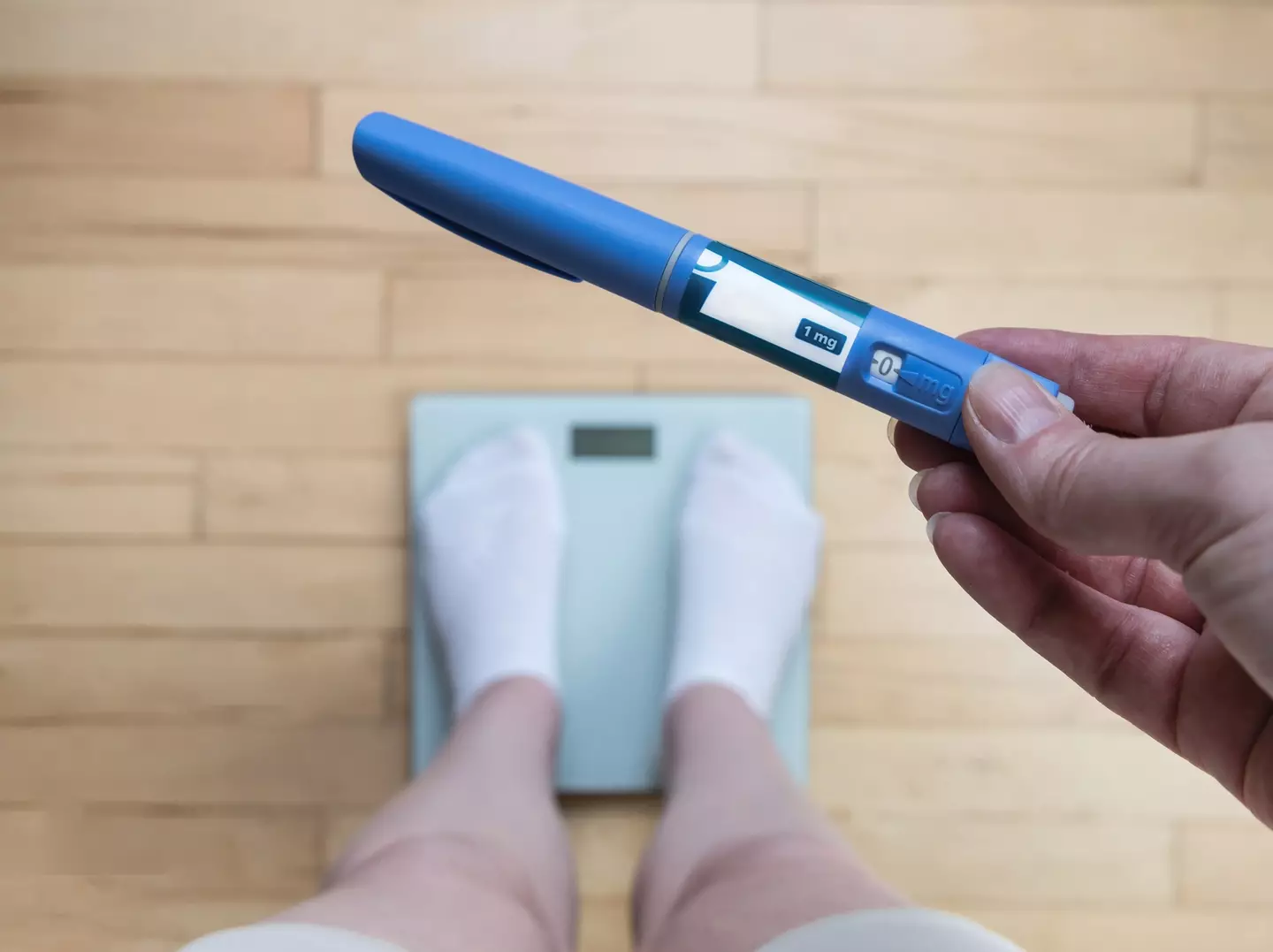A new study has revealed how quickly people begin to regain weight after coming off weight loss drugs.
It's known that GLP-1 medications can help people shed some pounds by regulating blood sugar levels and appetite.
Falling into that family of drugs, Ozempic has boomed in popularity. It's only intended to be used by people with type two diabetes, as its website explains: "Ozempic is a medicine for adults with type 2 diabetes that, along with diet and exercise, may improve blood sugar."
It notes: "While not for weight loss, Ozempic may help you lose some weight."
An estimated 12 percent of adults in the US have given GLP-1 medications - like Ozempic and Wegovy - a go.
Depending on the severity of side effects, people might intend to stay on the medication long-term to meet their ideal weight goals.
Although, one study did find that people stop using the injectable drugs around the one-year mark, or once their weight loss begins to plateau. So chances are, even if you respond well, you're not going to be on weight-loss drugs forever.
Thousands have turned to GLP-1 drugs to help aid in weight loss (Getty Images) How was the weight loss drug study carried out?
A new study published in BMC Medicine has identified the exact point at which people coming off GLP-1 and similar weight-loss medications begin to regain weight - a concern shared by many considering quitting the treatment for good.
Xiaoling Cai, Linong Ji and colleagues from Peking University People’s Hospital carried out a global meta-analysis, reviewing 11 studies that looked at how patients’ weight changed after they stopped using anti-obesity medications (AOMs).
In total, they examined data from 1,574 people who had been on treatment and 893 who were in control groups.
The researchers measured weight regain by tracking both body weight and BMI once medication use had ended.
Of the 11 studies, six focused on GLP-1 receptor agonists (like Ozempic and Wegovy) and one looked at dual GLP-1/GIP drugs, such as Mounjaro.
'Significant' weight gain was recorded, but eventually plateaued (Catherine Falls Commercial/Getty Images) What did the study find?
The study found that 'significant' weight regain began eight weeks after the discontinuation of weight loss drugs.
On average, participants had gained 1.5 kilograms (3.3 pounds) at that benchmark.
Weight gain increased up to week 20, where the average gain was 2.5 kilograms (5.5 pounds) - but after this point, it began to stabilize.
Ultimately, though, patients still maintained a weight loss compared to where they started.
Even one year after stopping medication, patients still weighed less than they did before starting treatment.
What's next?
Researchers now hope to follow patients for a longer period to better understand what influences weight changes after stopping treatment - including factors like diabetes status, lifestyle habits and the specific type of weight-loss drug used.
So, while weight regain can happen, coming off the medication shouldn’t be something to fear.
People tend to gain weight after coming off the drugs (Getty Stock Image) What has Novo Nordisk said?
Ozempic and Wegovy manufacturer, Novo Nordisk, re-emphasized that Ozempic should not be used for weight loss and told UNILAD the results of their own trial.
A spokesperson said: “Results from the STEP trials demonstrate that weight regain is likely once medication is stopped. Clinical experts consulted by Novo Nordisk view obesity as a chronic disease that should be managed similar to long-term health conditions such as diabetes and hypertension.
"These results are in line with other Glucagonlike peptide-1 receptor agonists (GLP-1 RAs) researched for weight loss.
"Eligible patients for Wegovy® use should be referred to specialist weight management services by their GP or local pharmacists. These services provide knowledge, tools, and support for successful, sustainable weight loss with a focus on promoting long-term health and wellbeing. Weight management services typically include teams of dietitians, dietic support workers, clinical psychologists, counsellors, doctors, and nutritionists available to support on the weight loss journey.”

 Ellie Kemp
Ellie Kemp

